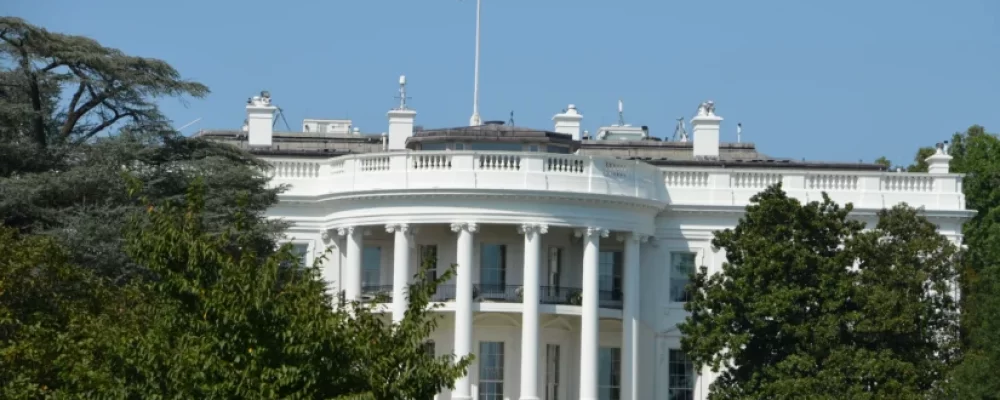Please note: while we address certain country-specific updates, this Alert contains information regarding global requirements, policies, and procedures as they stand as of the date of publication. We highly recommend reviewing any global mobility inquiries on a case-by-case basis, including any consulate-specific or immigration authority resources, in “real-time” before traveling internationally. Please reach out to our Global Mobility Team in advance of any international travel.
Canada – Express Entry and PNP, New Strategies and Policies, Immigration Medical Exam, Temporary Resident Visa and First Generation Limit
Express Entry and Provincial Nominee Programs (PNP)
The month of July 2024 was a busy month for Canada’s immigration programs. The most notable event was the Express Entry draw on July 30, 2024, when 964 “invitations to apply” (ITAs) were issued, targeting candidates through the Provincial Nominee Programs (PNP) with a CRS score cut-off of 686. This month recorded the highest number of Express Entry draws since 2015, indicating a robust selection process. In Ontario, several draws under the Ontario Immigrant Nominee Program (OINP) were also conducted. On July 16, 2024 Ontario invited candidates in various streams, including healthcare professionals and those in priority occupations, totaling 32,325 invitations issued so far this year across all streams.
New Immigration Strategies and Policies
On July 18, 2024, the Canadian government announced a new strategy to manage the influx of international students and address housing pressures. This includes placing caps on student permits to alleviate the strain on housing and infrastructure. On the same day, IRCC updated the criteria for evaluating “specialized knowledge” under intra-company transferee provisions, changes that will impact applicants under international trade agreements. To qualify, applicants must prove advanced proprietary knowledge and a high level of expertise. The new guidelines cover various agreements including the Canada, U.S., and Mexico (CUSMA) agreement among others.
Processing Immigration Medical Exams (IMEs)
On July 30, 2024, IRCC announced a significant update regarding the processing of immigration medical exams (IMEs). This update introduces a temporary public policy, effective until October 6, 2024, which allows applicants who have completed an IME within the last five years to use their previous IME number in connection with new applications. This policy aims to expedite the application process and reduce redundancy for applicants already residing in Canada. The policy applies to both permanent and temporary residence applications, provided the previous IME indicated no public health risk.
Updated Guidelines for Temporary Resident Visas (TRVs)
On July 30, 2024, IRCC issued an update providing functional guidance on temporary residents. The new guidance emphasizes improved processing times, streamlined application procedures, and specific criteria for urgent processing requests. The update outlines the criteria for urgent processing of temporary resident applications, highlighting that applicants must demonstrate a significant need (such as employment, education, or urgent travel requirements). The guidance also includes detailed instructions for IRCC staff on handling applications and ensures that applicants receive timely and fair processing of their requests. Additionally, this update is part of IRCC’s broader strategy to manage the increasing number of temporary residents in Canada, aiming to reduce the temporary resident population to 5% over the course of the next three years.
Interim Measures for First-Generation Limit (FGL)
On July 30, 2024 IRCC introduced an interim measure to manage proof of citizenship applications impacted by the first-generation limit (FGL). The FGL restricts citizenship by descent to the first generation born abroad. This measure targets both new and existing applications, allowing urgent processing for those demonstrating immediate needs, such as accessing benefits, securing employment, or urgent travel. Applicants can also request a discretionary grant of citizenship under subsection 5(4) of the Citizenship Act for special circumstances, providing relief while awaiting the enactment of Bill C-71 (which aims to remove the FGL).
Czech Republic – Posted Worker Declaration Filings as of July 1, 2024
Posted Worker Declarations (PWDs) will need to be filed with the Labor Inspectorate rather than the local Labor office as of July 1, 2024. The declaration must be submitted online via a new online portal. In a first step it will be necessary for the posting company to register on the portal, and in the next step each posted worker must be registered with relevant information and dates of posting. Among other measures, it will be necessary to file the employment contract translated into the Czech language.
Israel – Launch of the ETA-IL System in January 2025
The Israeli Ministry of Interior announced that the start date of the Electronic Travel Authorization – Israel system (ETA-IL ) is now pushed out to January 2025. Previously, it was communicated that the system would go into effect on August 1, 2024. ETA-IL is designed to streamline the entry process for visa waiver nationals seeking short-term visits to Israel for purposes other than work, volunteering, or studying.
Italy
Several local immigration authorities are now accepting the Statement of Comparability and of Authenticity by Academic Equivalence Mobility Information Centre (CIMEA) as an alternative to the Declaration of Value (Dichiarazione di valore) diploma validation. It is an online process which guides applicants and provides information as to what documentation (besides diploma and transcripts) are needed, including whether translations are required. Please see details here. Before using the CIMEA, applicants are advised to inquire with the local immigration office as to whether the office will accept the CIMEA in lieu of the DOV.
Portugal – Delays Continue, and Decree-Law 41-A is Extended
The term of Decree-Law 41-A/2024 has been extended beyond June 28, 2024, making it possible for expiring Portuguese visas to remain valid until June 30, 2025. As a result, visa holders will continue to be in good status and can continue to work even though their renewal applications may remain pending.
United Kingdom – Right to Work Checks and UK Immigration under the new Labour Government
Updates to UK right to Work Checks
The Home Office updated its Employer’s guide to right to work checks on June 21, 2024. This includes the following important updates for employers:
- Right to work Checks: Right to Work checks for EU Pre-Settled Status will no longer require a follow up check, and the Online right to work check result will no longer feature an expiration date. Thus, only one check is required for the EU Pre-Settled Status holders and the employer will have a continuous statutory excuse against civil penalty, unless they become aware that the person lost their status and no longer have a right to work in the UK. (For example, individuals may lose their status due to a prolonged absence from the UK.)
- Follow-up checks for holders of short-dated Biometric Residence Permits (BRPs) and the Home Office transition to online evidence of immigration status (eVisa): the guidance now clarifies that all BRP cards are expiring on December 31, 2024, and that the status expiration date should be tracked on the basis of the Online right to work check result using the share code. The follow-up check is only required before the date of the UK status expiration, not the BRP card expiration. However, where the BRP expiration date of December 31, 2024 is tracked as the expiry date, a follow-up check will be required. It will be key for employers to track the correct expiration date for all BRP holders.
Key points for UK immigration under the new Labour Government following the July 4, 2024 General Election
The Labour party won the UK General election on July 4, 2024, which means we can expect changes and reforms to various laws and policies. What does the new Labor government mean for the future of UK immigration?
Based on the Labour manifesto pledges and other announcements, we can expect the following points to be the focus of UK immigration policy:
- Addressing skills shortages & Reduction in net migration
- General goal of reduction in net migration, but Labour does not want to set an annual cap.
- Investigate the impact of the earlier increases to salary thresholds for the Skilled Worker route.
- Require different parts of government to put in place a ‘skills improvement plan’ in sectors with high numbers of migrant workers, such as the care sector.
- Strengthen the Migration Advisory Committee and roles of other independent bodies in formulation of the immigration policy and addressing skills shortages.
- Retain ban on care workers and students’ ability to bring dependents.
- Increased immigration compliance and redesigned immigration system
- Reform the existing ‘points-based immigration’ system so that it is ‘fair and properly managed’.
- Strengthen the link between immigration and skills policy to reduce shortages in IT, engineering, care, and construction sectors.
- Review abolition of the Resident Labour Market Test required for sponsorship of the UK work visas.
- Bar employers who breach the rules and who lack sufficient workforce training from hiring foreign workers, and introduce stricter penalties for employers who breach employment and immigration laws.
- Other wider immigration policies:
- End the Rwanda removal policy for asylum seekers.
- Introduce a cross-border security agreement with the EU.
- Set up an enforcement unit for speedy removals of those with no right to enter and remain in the UK.
The new Home Secretary, Yvette Cooper, has commissioned on July 30, 2024 for the Migration Advisory Committee (MAC) to review the following:
- Review the current £29,000 minimum income requirement for family and partner/spouse visas. There will be no further changes to the level of the minimum income requirement until the MAC review is complete. As a reminder, the previous government planned to further increase the threshold to £34,500 later this year and then to £38,700 in 2025. This is currently on hold.
- Review the reliance of key sectors of the UK economy on migrant workers, specifically the IT and engineering sectors. IT and engineering have consistently relied on significant levels of international recruitment and have been included on shortage occupation lists for over a decade, Cooper noted. We can expect potential changes to the skills occupation lists after the review.
In any event, businesses will need to prepare strategies to account for future changes and to ensure they can continue to hire and retain overseas workers in the UK. In particular, employers should:
- Review recruitment needs to address any skills gaps and identify what training programs can be implemented.
- Review the timing of recruitment processes and what impact it may have if the resident labour market test is reintroduced.
- Review overall compliance with sponsor licence obligations and reporting.
- Review overall compliance with employment laws, especially practices relating to overseas workers.
If you have any questions or concerns about these changes, please reach out to your contacts at the firm within Seyfarth Shaw’s Global Immigration & Mobility team.
“With approximately 900 lawyers across 17 offices, Seyfarth Shaw LLP provides advisory, litigation, and transactional legal services to clients worldwide.”
Please visit the firm link to site






